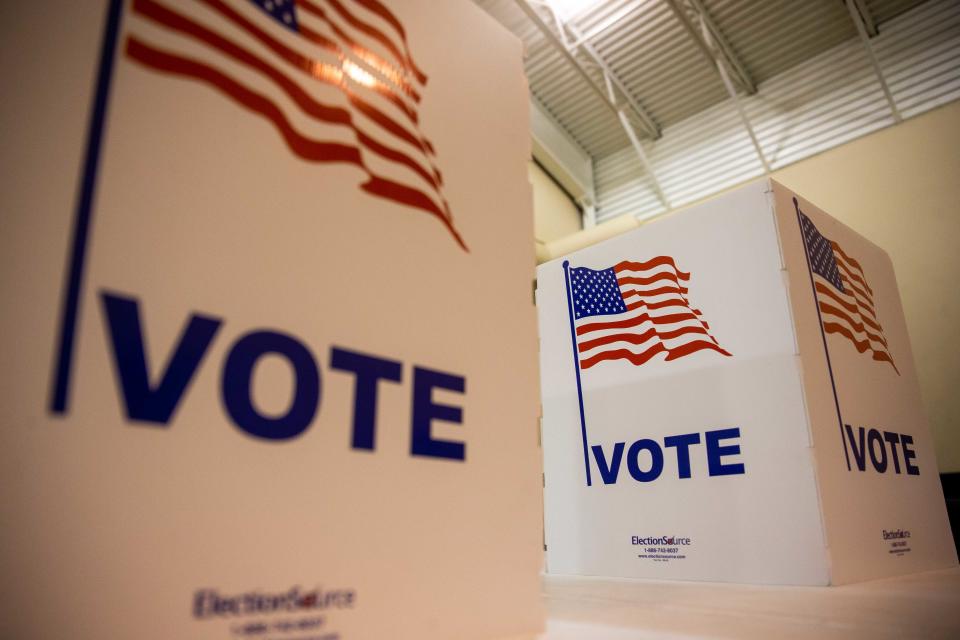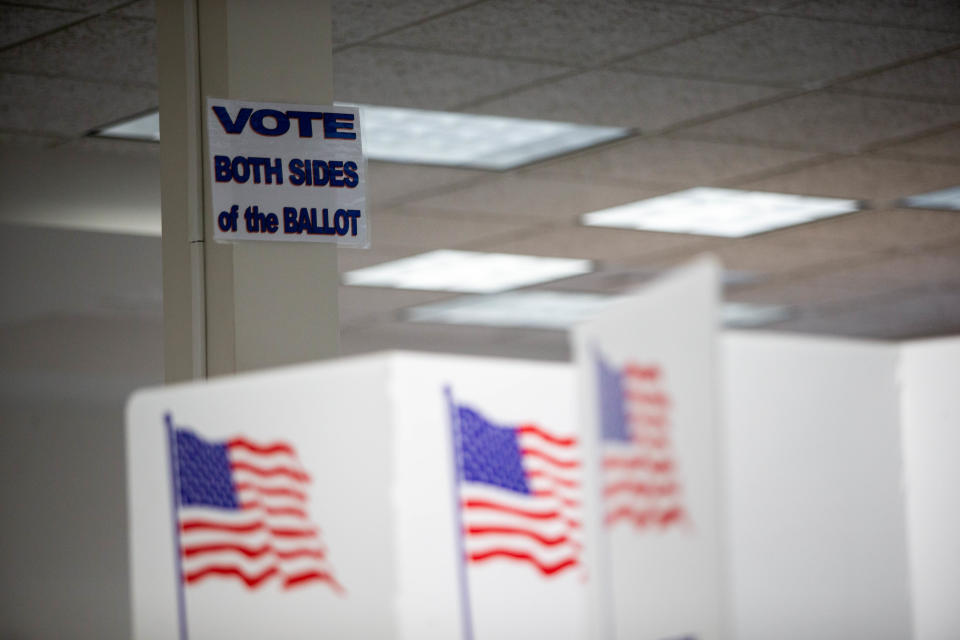Dale Wyngarden: We should have one, simple way of running elections
Holland has about 27,000 registered voters. That’s pretty remarkable, considering the census tells us the eligible voting population of citizens 18 and older is about 26,400. But before you get your knickers twisted and rush to hoist a conspiracy flag, understand how the system works. Or doesn’t, as the case may be.

Today, 18-year-olds can register and vote. Male and female; rich or poor; white or not white; literate or illiterate, or somewhere in between. It was a bumpy ride to get where we are. Originally, the Constitution left voter eligibility to states, and the result was an electorate dominated by rich, white men. Founding fathers thought women were clearly incapable of voting intelligently and a nation that counted slaves as three-fifths of a person surely wasn’t going to let them vote.
But following the Civil War, pressure mounted to extend voting rights to all men, and the 15th Amendment in 1870 purported to do. It left the individual states loopholes, however, resulting in poll taxes, literacy tests, and other obstacles for people of color and people in poverty.
It took 132 years after our Constitution was ratified until the 19th Amendment in 1920 extended the vote to women, and not until the 24th Amendment in 1964 were poll taxes prohibited. The 26th Amendment, lowered the voting age from 21 to 18 in 1971, driven largely by compulsory military service for younger men in World War II and Vietnam. “Old enough to fight is old enough to vote,” went the mantra.

Voting eligibility at 18 meant a few high school and most college students could join the ranks of voters. While young people may be lukewarm on local issues, presidential elections often bring a tide of new voter registrations. Students may register, vote once, graduate, and move on. But they stay registered as local voters. The same is true of other residents who register here, but later move elsewhere. They too are likely to stay registered.
Why? you might ask. Because local clerks aren’t like hall monitors that follow the comings and goings of all residents. The responsibility for advising local officials that we are no longer residents and eligible voters falls upon us, the voters. Well good luck with that, I say.
So unless a voter who has changed residency and is no longer an eligible elector advises the local clerk, in writing, they stay on the rolls. Phone calls aren’t sufficient, nor is a note from a parent. Clerks can flag voters for residency verification if they suspect a change, but are restricted in their ability to unilaterally purge voter rolls.

Death notices do it. So do reciprocity agreements among some 31 states, whereby a new registration triggers notification to the state of previous registration. But why only 31 states, and with a cumbersome system? Any safeguard to prevent a person being registered in multiple jurisdictions ought to be a national ironclad, efficient, and immediate clearinghouse covering all fifty states.
Personally, I don’t much care how Idaho chooses their county constables. Appointment, election, caucus, or straw polls might all work. But when it comes to choosing national leaders — our president, senators and congressional representatives — there should be one standard rule book, applicable nationwide. This last year saw a rash of individual states tweaking their registration and voting laws. In a nation where conspiracy theorists now lurk behind every tree, this is nonsense. We need one uniform set of national standards, applying across the board to registration, voting, tabulating and reporting.
Michigan is one of only nine states that run elections at the county and local level. Precincts are limited to 3,000 people, and lengthy waits to vote are rare. Our paper ballots leave a paper trail. Elsewhere, some state-run elections have been notorious for people waiting for hours in blistering heat to vote, rivaling the worst of third world countries. And some states tabulate electronically only, which may be efficient, but hard to audit and certainly not tamper proof. Such inconsistencies are national embarrassments.
Cries of conspiracy and stolen elections seem to resonate among far too many. They may never be silenced, but we could do much to mute them by adopting one national standard for registration and elections, not 50. Let the states exercise folly in their own affairs, but when it comes to choosing those who will run our country, one and only one rule book should apply.
— Community Columnist Dale Wyngarden is a resident of the city of Holland. He can be reached at wyngarden@ameritech.net.
This article originally appeared on The Holland Sentinel: Dale Wyngarden: We should have one, simple way of running elections

